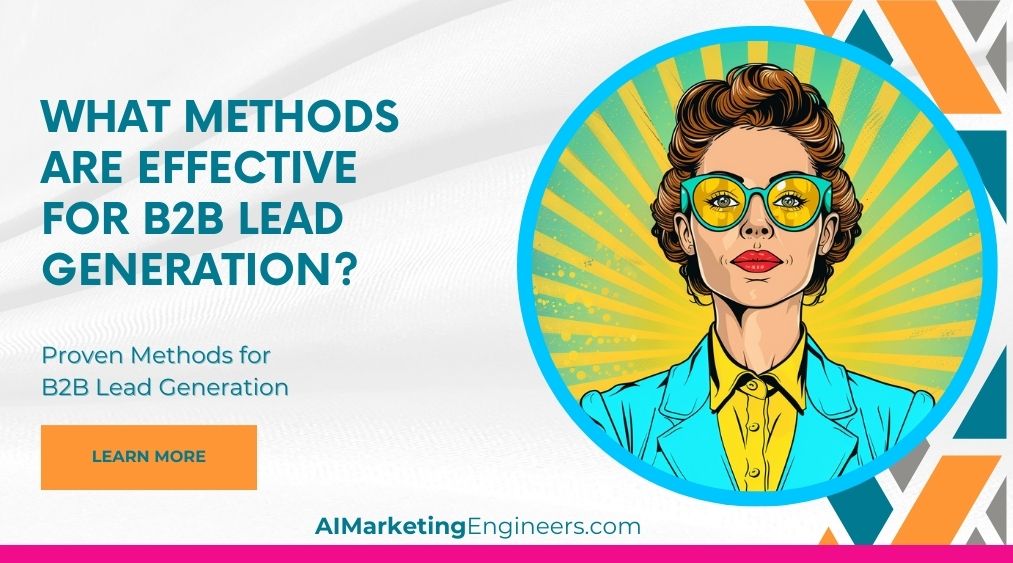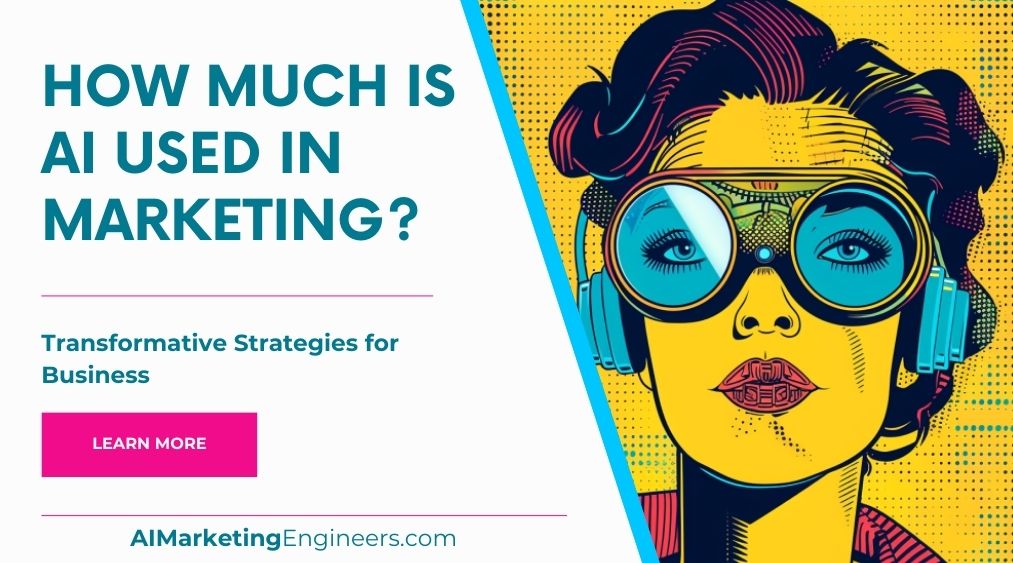Key Takeaways
✅ Increased Emphasis on Personalization and AI: In 2024, advanced campaign marketing strategies are heavily leveraging artificial intelligence (AI) and machine learning to achieve unprecedented levels of personalization. Statistics show that campaigns utilizing AI-driven personalization can see up to a 20% increase in sales.
✅ Rise of Omnichannel and Integrated Campaigns: The importance of omnichannel marketing continues to grow, with 73% of marketers implementing integrated campaigns across multiple channels to provide a seamless customer experience.
✅ Focus on Data-Driven Decision Making and Analytics: Data analytics has become a cornerstone of advanced campaign marketing strategies, with 84% of marketers relying on data to inform their decisions. The use of predictive analytics is on the rise, with a projected growth rate of 23.2% from 2020 to 2027.
Introduction
In the fast-paced world of marketing, captivating your audience and achieving remarkable business milestones become increasingly challenging. Imagine having a powerful tool at your disposal that not only garners attention but also propels your customers to take action—all within a set schedule. This is the essence of campaign marketing, an orchestrated, multifaceted approach that combines precision, strategy, and creativity to hit specific business targets.
This article will take you on a deep dive into the world of campaign marketing. We'll unfold the concept like a map, guiding you through the benefits, the why, and the how of crafting a campaign that not only sings but also rings in the results. Whether you're looking to drive sales, boost brand presence, or introduce a dazzling new product, this article will illuminate the path to stunning marketing success.
So buckle up and prepare to explore the bustling universe of campaign marketing, where every message is tailored and every strategy is aligned with the stars of your business goals. Welcome to a journey that promises not just enlightenment on achieving marketing excellence but also a blueprint to sculpt your very own winning campaign.
What is Campaign Marketing?
Campaign marketing is a strategic effort deployed by businesses to promote a specific goal or to highlight a particular product or service. This goal-driven approach utilizes a mix of media channels to reach a targeted audience within a predetermined timeline. Statistics reflect that campaign effectiveness has seen significant improvement, with advertisers boosting their campaign effectiveness score by an average of 18.6% since 2014. Moreover, campaign marketing delivers a higher return on investment; campaigns that are considered effective yield more than twice the ROI compared to those that underperform.
Unlike continuous marketing strategies, campaign marketing efforts are bounded by time and seek to create a substantial impact in the short term. Campaigns aim to prompt immediate engagement from consumers, whether it’s an increase in sales during a limited-time offer or eliciting feedback for a new market entry.
Benefits of Campaign Marketing
The following benefits underline the importance of campaign marketing strategies:
1. Focus on specific goals: Campaign marketing allows organizations to zero in on precise objectives, streamlining focus and enabling the efficient tracking and assessment of campaign success. Effective campaigns use high-quality creative content and strategic ad placements to foster notable ad recall, both of which are crucial factors in a campaign's effectiveness.
2. Targeted approach: Effective campaigns target finely segmented audiences with personalized messaging, bolstering the likelihood of converting leads. The quality of the creative content plays an essential part, contributing to 36% of a campaign’s success by resonating deeply with the chosen demographic.
3. Measurable results: Rigorous data analysis enables marketers to monitor the campaign's performance in real-time, measure outcomes objectively, and modify tactics as needed. This data-driven strategy ensures accountability and continual improvement in marketing tactics.
4. Brand amplification: Campaign marketing can cast the spotlight on a brand, potentially increasing awareness and loyalty within the target market. The increase in campaign effectiveness scores indicates that brand metrics are improving as a result of successful campaigns.
However, challenges persist in campaign marketing, with advertisers sometimes overestimating the impact of technology and data (28%), dealing with lack of brand trust (22%), and struggling to find the perfect balance of creative and data (21%). These figures suggest that while technology and data are vital, they must be strategically leveraged in conjunction with compelling creativity to maximize campaign impact.
Steps in Planning a Campaign Marketing Strategy
1. Define your objectives
Begin by crystallizing what the campaign intends to achieve. Establish goals that are concise, measurable, and time-specific, taking into account challenges like balance between creative output and data utilisation.
2. Identify your target audience
Recognizing the target demographic is crucial for personalizing campaign messages. Understand the characteristics of the audience—demographic, psychographic, and behavioral—to tailor communication that resonates effectively.
3. Select your channels
Determine the most suitable marketing platforms based on where the target audience is most active and responsive. This selection should align with the overarching campaign goals and should contribute to the rising campaign effectiveness.
4. Develop your messaging strategy
Craft a narrative that connects with the target audience and enforces the campaign's key objectives. This strategy should hinge upon a persuasive value proposition and a call-to-action that prompts immediate engagement.
5. Set your timeline
Clear timelines are fundamental to any campaign. They provide structure to the campaign rollout and help in ensuring all marketing materials and communications are prepared and released accordingly.
6. Create your content
Generate content that will capture the attention and interest of your target audience. You’ll want content that succinctly conveys your message and prompts the desired action from potential customers.
7. Implement your campaign
Roll out your campaign across the chosen channels, observing consistency in messaging and design. It's essential to keep a keen eye on the campaign's progression and make necessary adjustments in response to real-time feedback.
8. Analyze results and optimize
After the campaign concludes, it's critical to dive into the data and glean insights that could enhance future marketing efforts. Analysis may pinpoint over-reliance on data or technology and provide guidance on balancing creative approaches moving forward.
AI Marketing Engineers Recommendation
In order to provide a tailored recommendation for a marketing campaign, we'd need to consider several key factors including the target audience, the product or service being offered, the competitive landscape, historical performance data, and the overarching business goals. However, I can draft a generalized strategy that applies best practices in digital marketing and analytics.
1. Audience Segmentation and Targeting:
Begin by leveraging data mining techniques to segment your audience based on behavior, demographics, and psychographics. Once segmented, develop personalized marketing messages and offers that resonate with each specific group. Utilize AI-driven tools to refine targeting and reach prospects on the platforms they most frequently use.
2. Utilization of Multi-Channel Marketing:
Implement a multi-channel approach that covers social media, email marketing, content marketing, SEO, PPC, and retargeting. Ensure that each channel is optimized according to the preferences of the audience and the nature of the platform. This approach should be agile, allowing for real-time optimization based on campaign performance data.
3. Content Strategy:
Create a content strategy that includes a mix of educational, informational, and promotional content. Invest in video marketing, as it continues to demonstrate high engagement rates. Use AI-powered content creation tools to generate articles, blog posts, or advertisements that are optimized for search engines and user engagement.
4. Leverage Marketing Automation:
Utilize marketing automation tools for efficiency and to create a more personalized experience for customers. Automation can help in scheduling posts, segmenting email lists, personalizing email content, and triggering emails based on customer behavior.
5. Conversion Rate Optimization (CRO):
Continuously monitor and optimize the campaign's conversion paths. Implement A/B testing for your landing pages, calls-to-action, and email campaigns to find the most effective versions. Use heat mapping and session recording tools to understand how users interact with your site and make data-driven decisions.
6. Reliance on Data Analytics:
Incorporate advanced analytics and machine learning algorithms to process large volumes of data for insights. Focus on metrics that directly correlate with business outcomes, such as lifetime customer value, customer acquisition costs, and return on ad spend. Use predictive analytics to foresee trends and adapt your campaigns proactively.
7. Customer Relationship Management (CRM):
Use a robust CRM system to track interactions with customers and prospects across all touchpoints. This data will inform your campaign strategies and help personalize communication.
8. Incorporate AI for Personalization and Predictive Analysis:
Take advantage of AI capabilities to personalize user experience at scale, from product recommendations to dynamic website content. Also, use AI for predictive analytics to forecast future trends, demand, and customer behavior.
9. Ethical Data Use and Privacy Compliance:
Ensure that your use of customer data is transparent and complies with global data protection regulations like GDPR and CCPA. This will help build trust with your audience and protect your brand’s reputation.
10. Measure, Analyze, Adjust:
Lastly, constantly measure your campaign's performance and be prepared to pivot your strategy as needed. Implement a robust analytics framework to capture data that will inform your decision-making process. Use visualization tools to present data in a way that is easy to understand and actionable for business stakeholders.
Conclusion
In conclusion, campaign marketing is a powerful and focused approach designed to propel organizations toward their desired marketing ambitions within a set timeframe. Central to its success is the careful orchestration of a sequence of activities across various touchpoints, creating a unified and compelling brand experience for consumers. This holistic strategy enables businesses to zero in on specific goals—ranging from driving sales and customer engagement to introducing novel products and fortifying brand loyalty.
Embracing these core principles will pave the way for successful campaign marketing strategies that not only meet the immediate objectives but also build a lasting and loyal customer base. In an age where consumers are bombarded with information, a well-crafted campaign marketing strategy has the power to cut through the noise and deliver tangible business results.
FAQs
Question 1: What is campaign marketing?
Answer: Campaign marketing is a strategic planning process that encompasses the development, planning, execution, and management of marketing and advertising activities centered around a specific theme, product launch, or objective to achieve predetermined goals.
Question 2: What are the benefits of campaign marketing?
Answer: The benefits of campaign marketing include increased awareness, heightened sales, and enhanced customer loyalty. It can also contribute to an improved brand image and allows marketers to target specific audience segments with customized messages.
Question 3: What are the key components of a successful campaign marketing strategy?
Answer: Key components of a successful campaign marketing strategy involve market research, formulation of a core theme or message, goal setting with clear metrics, budget and timeline determination, creative advertising and marketing campaign execution, performance monitoring, and post-campaign effectiveness evaluation.
Question 4: How can marketers measure the effectiveness of a campaign marketing strategy?
Answer: Marketers can measure the effectiveness of a campaign marketing strategy through various methods, including web traffic analysis, store traffic tracking, customer feedback assessment, focus groups, surveys, and the scrutiny of social media engagement and conversion rates.
Question 5: How does campaign marketing differ from other types of marketing?
Answer: Campaign marketing is distinguished by its objective-driven focus, typically tied to a specific product promotion or brand awareness goal for a limited duration. It often entails more intense advertising efforts compared to other marketing types and is frequently linked with particular events or seasons.
Question 6: How frequently should companies launch campaigns?
Answer: The frequency at which companies should launch campaigns varies based on factors such as product type, target audience, market conditions, and competitive landscape. Campaign frequency can range from annual to several times a year, with careful consideration to avoid market saturation and audience fatigue.















